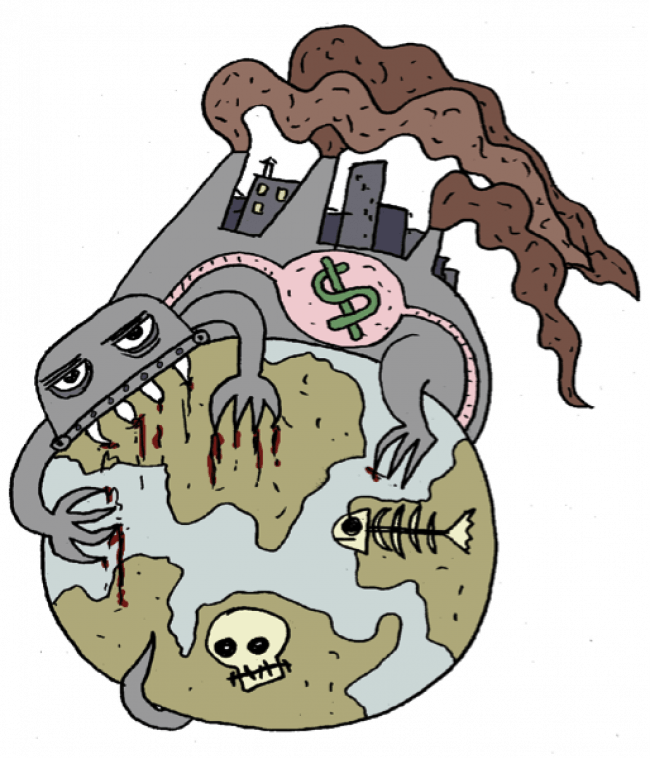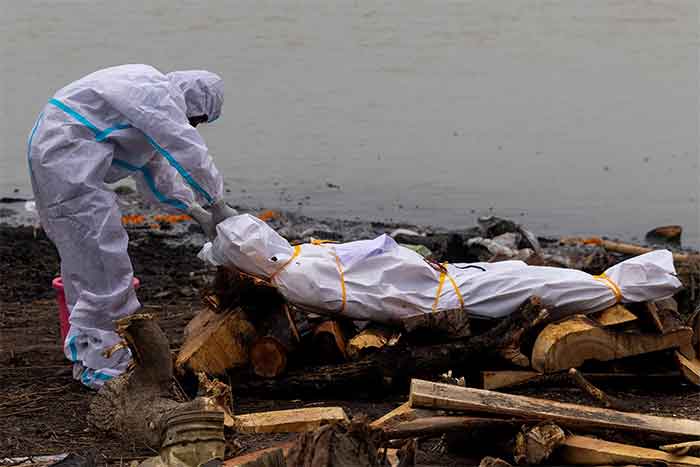
There are decades where nothing happens, and there are weeks when decades happen. When history is compressed enough and people bend their minds to new problems, consciousness can change with lightning speed. Because of the emotional rollercoaster that is accompanying the Covid-19 pandemic, the world’s collective weltanschauung is shifting noticeably to the left.
Fear and panic are poor advisers, of course. Absurd, visceral predictions are floating on the internet and from the lips of people everywhere. I have heard conspiracy theories and divinations of impending social and economic collapse that run the gamut from rising nationalism, military dictatorship, world war and zombie apocalypse to mass de-urbanization, a return to the countryside and a hybrid form of postmodern feudalism.
Such views are not on all fours. Take the last one, for instance. It is ridiculous to speak of any large-scale return to the countryside. If the failed attempts to create communism in Russia and China achieved anything (something capitalism also achieved) it was the elimination of the individual peasant household as a major factor in production.
But what if Covid-19 kills a lot more people than the algorithms project? What if it becomes a new Great Plague, or something akin to the merciless onslaught of smallpox and measles that ravaged the New World after 1492? These disasters claimed so many lives that the price of labor soared and the value of land and other capital plummeted. With such a shortage of labor, workers ate and dressed better, and landlords complained that the humble turned up their nose at employment. Clearly, this sort of situation cannot benefit the planet’s movers and shakers.
Not to mention that the Grim Reaper cannot wreak such extreme havoc on the world’s population. Modern medicine, the great expansion of the state (a result of WWI), the digital revolution and speed with which information now travels, will most likely restrict the danse macabre to a quick twist rather than a long waltz. This is reflected in the statistics, which pale in comparison with the Great Plague or even the Spanish “lady,” the deadly 1918-20 influenza epidemic.
Covid-19 is much more Darwinian and less indiscriminate or “democratic” than past pandemics. It tends to spare the young. Even in the worst case scenario, it will make the world a younger place than it is already (especially in developing areas).
Yet aren’t the rich and powerful benefiting from the crisis? Not really. Although the pandemic is a great opportunity to cut wages, any advantage gained from reducing salaries is offset by the tremendous decline in world trade. Despite their policies of austerity, quantitative easing, buying securities and keeping interest rates near zero, the volume of world trade was falling long before the Covid-19 crisis unleashed itself on the world.
The crisis has revealed the incompatibility of the existing system with the health of billions of human beings. Decades of austerity decimated the healthcare system in many countries. This was done to cut “unnecessary” spending and compel people to seek private alternatives, opening a very lucrative field of investment for private healthcare companies. Many doctors jumped on the bandwagon, exchanging the Hippocratic Oath for a hypocritical one as they milked money from broken bones, internal pathologies and the like.
The free-market system is facing an existential threat. It cannot survive it the way it has in the past—through world war, which ensured the destruction of so much capital that profits could be had in the process of rebuilding.
The growth of post-War production around the world glutted the international market and profit margins tanked. Beginning in the 1980s, investors began to seek miraculous profits in non-essential spheres. First among these was the financial sector, which swelled far beyond the extent justified by the value created in the productive economy. Neoliberal, “financialized” capitalists also invested surplus capital in a range of other speculative gambles. These included real estate bubbles, commodity and shares markets, and unicorns that rode the wave of smart technology and the proliferation of app-based services. You know them well: Uber, AirBnB, Instacart, Snapchat, Pinterest and Dropbox, among others.
Surf the net and you cannot fail to notice a lot of people are still calling the pandemic a hoax. This is obviously wrong, but such comments express the fears people have that they are being duped again and that the rich and powerful will use the crisis against them.
Still and all, the big grab is over. And it is unreasonable to expect that neoliberal “casino” capitalists will take advantage of the falling cost of labor to reinvent themselves as new Henry Fords, John Rockefellers and Andrew Carnegies.
The Great Depression shrank the world’s economy and destroyed international trade and travel. The Covid-19 pandemic is doing the same, only with a colossal difference. It appears we are lucky in our misfortune. This time a tremendous blow to the world economy cannot lead to global war because the atomic bombs dropped on Japan in the summer of 1945 made total war impossible.
Epidemics are a mirror for humanity, reflecting existing moral relationships that governments and institutions have toward people, as well as those that people have towards one another. There is a marked difference between the way the former and the latter have reacted to the Covid-19 crisis. When the pandemic first began, a number of governments peddled vanilla statements that played down the danger. Their main concern was not the health of their citizens, but saving the profits of the banks and monopolies. The contrast with how simple people around the world are reacting to the crisis is sharp.
The Covid-19 pandemic is much worse than a natural calamity. Greta Thunberg’s strident words about climate change seem almost irrelevant now. As during a war, people’s lives are abruptly interrupted and families are torn apart and separated. Unlike war, however, the crisis is uniting people across all manner of boundaries and borders. The effect it is having on a grassroots level is akin to that one might expect from an attack on our planet by extraterrestrials.
Governments are worried that people will begin taking matters into their own hands. In a number of countries, including Italy, Spain but also the United States, employees have intervened directly and imposed the closure of some plants. It is important to note that strikes were on the rise before the pandemic erupted. In September and October of 2019, for example, the United States witnessed the first national strike by auto workers in more than forty years.
People are demanding the abolition of the profit motive in medicine and publicly owned health services. Some are even calling for the immediate requisitioning of hotels, empty luxury apartment blocks and mansions in order to turn them into hostels for sick people.
If this crisis leads to a return to production, this can only be a good thing. It will force millions of people, especially in economically advanced countries, off their posteriors. Sedentary social behavior is symptomatic of societal decay. During major crises, social institutions that support hyper-specialization are removed and people tend to become more generalized in their work and daily habits.
For decades the catchword of the ruling elites has been privatization. Large state-owned corporations were chopped up and sold off for a song to the wealthy. The very concept of nationalization was ridiculed as something belonging to the spectral past. Now all of a sudden, the tune has changed. Take, for instance, the recent words of Bruno Le Maire, France’s Minister of Finance: “I won’t hesitate to use all means available to protect big French companies…I can even use the term nationalization if necessary.” In the same spirit, President Donald Trump, of all people, has compelled General Motors to make ventilators.
Neoliberal analysts are coming to the painful realization that the free-market system is in serious trouble. The prestigious Australian stock broking magazine Macquarie Wealth Management has warned that “conventional capitalism is dying” and that the world is headed for “something that will be closer to a version of communism.” To paraphrase a lyric by the Charlie Daniels Band, all hell is breaking loose and the devil is dealing the cards!
One thing is certain: the Rubicon has been crossed. In a matter of a few weeks, so much has changed that it is quite impossible now for the leaders of the world’s big players—the United States, China, Russia and the European Union—to return to the status quo ante. Who, for instance, will acquiesce to the kind of money spent thus far on military might and technology? Covid-19 represents not only a powerful blow to the world’s military-industrial complexes but also to the very urge to conduct politics by “other” means.
Our postmodern world is sick with something much worse than Corona virus, and people know this. Once we manage to contain the invisible enemy, we will turn to confront a far more visible one. And we will finally make our farewell with an expectorating system that has outlived its usefulness.
Evel Economakis teachs IB history at Ionios Lyceum in Athens, Greece
SIGN UP FOR COUNTERCURRENTS DAILY NEWS LETTER
















































